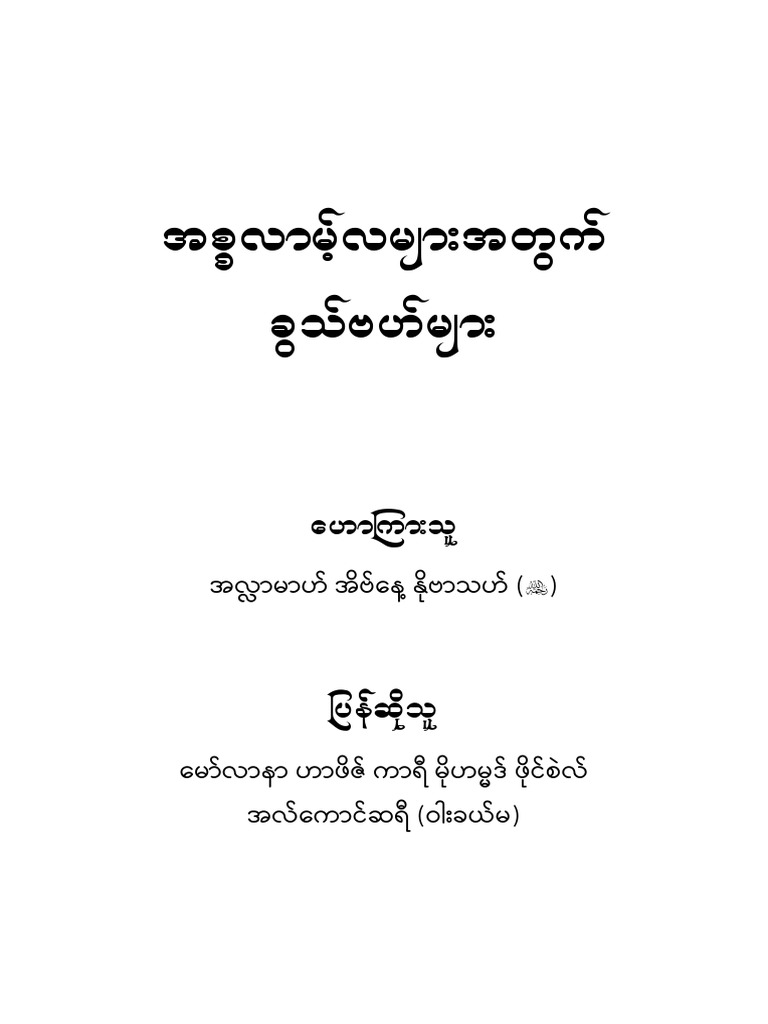In the resplendent tapestry of Islamic scholarship, the figure of Asbagh Ibn Nubatah emerges as a beacon, illuminating the path for those who seek to delve into the profundities of Shia teachings. His contributions resonate deeply not only within the realms of theology but also in the philosophical musings that shape a faithful life. Born in a tumultuous era marked by political strife and theological divergence, Ibn Nubatah’s influence transcends the boundaries of time, revealing insights that remain pertinent today.
At the heart of Ibn Nubatah's teachings lies an intrinsic understanding of the immutable relationship between faith and action. He artfully navigated through the complexities of Islamic jurisprudence, emphasizing that true belief must manifest in righteous deeds. This connection is akin to the roots of a mighty tree; unseen yet integral, it nourishes the visible expressions of faith. When one grasps the essence of this metaphor, the wisdom inherent in Ibn Nubatah’s teachings becomes palatable. Faith without deeds is but a barren land devoid of vitality.
Ibn Nubatah’s sermons are characterized by their exquisite use of linguistic allure. His command of eloquent rhetoric engages the listener, weaving intricate arguments that resonate with the listener’s spirit. He drew upon the poetic traditions of the Arabic language, utilizing allegory and metaphor to convey profound truths. In a world where many feel adrift, his words serve as an anchor, providing guidance through the stormy seas of life. Such technique not only captivates the mind but also stirs the heart, leading to a holistic transformation of the individual.
One cannot discuss Shia teachings without addressing the pivotal concept of Imamate, which occupies a central position in Ibn Nubatah’s discourse. He articulates that the Imams are divinely appointed leaders, serving as both spiritual guides and temporal authorities. To dismiss their significance is to overlook a cornerstone of Shia identity. The metaphor of a lighthouse aptly encapsulates this relationship; just as a lighthouse guides mariners safely to shore amidst turbulent waters, the Imams illuminate the way for believers navigating the complexities of existence. In times of uncertainty and moral ambiguity, their teachings provide a compass for ethical conduct.
Delving deeper into the nature of leadership, Ibn Nubatah accentuates the qualities that render an Imam worthy of reverence. He describes the need for knowledge, piety, and unwavering dedication to justice. This leads to the concept of ‘Adalah’ (justice), which is paramount in Shia thought. The Imam embodies the principles of equity, serving as a mirror reflecting the divine attributes bestowed upon humanity. The metaphor of a mirror is particularly poignant; it not only reflects light but also provides clarity, enabling individuals to discern right from wrong in their own lives.
Moreover, Ibn Nubatah’s teachings advocate for social responsibility, urging followers to engage with their communities actively. He posits that faith should not be a passive endeavor but rather a catalyst for social reform. In this context, the metaphor of a river comes to mind; a river flows, nurturing the lands it passes through, symbolizing the vital role of believers as agents of change. Engaging in communal welfare, alleviating suffering, and advocating for justice are not just recommended but are essential expressions of one’s faith.
In his eloquent discourses, Ibn Nubatah also emphasizes the importance of spiritual purity and the introspective journey towards self-enhancement. The metaphor of a garden beautifully encapsulates this idea: just as one must tend to a garden, nurturing plants and uprooting weeds, so too must individuals cultivate their inner selves. The meticulous process of self-examination, repentance, and spiritual growth enables one to blossom into their true potential. It is through this painstaking yet rewarding labor that one draws nearer to the Divine.
The struggles faced by Ibn Nubatah and his contemporaries also serve as a reflective lens through which to understand contemporary challenges within the Shia community. The essence of resilience, a potent theme in his teachings, encourages unity among believers against the backdrop of adversity. This communal strength can be likened to a fortress; each brick, representing the individual, contributes to the overall strength of the structure. Together, believers can withstand external pressures while fostering an environment of mutual support and growth.
As a chronicler of spiritual wisdom, Ibn Nubatah meticulously recorded the teachings of the Prophet Muhammad and the Imams, ensuring that the divine message endured through generations. His written legacy is not merely a collection of texts; it is a lifeline for those seeking authenticity and guidance in their spiritual quests. The quilts of interwoven narratives he crafted serve both as a testament to his time and as an enduring source of knowledge. Readers are invited, through his works, to engage with the intricate web of history and faith, fostering a deeper understanding of their own place within this grand narrative.
In conclusion, the teachings of Asbagh Ibn Nubatah embody the quintessence of Shia spirituality, interlinking faith with action, leadership with justice, and individual growth with communal responsibility. His legacy, enriched with metaphorical depth and eloquence, continues to resonate, inviting each seeker to explore the depths of their faith with sincerity and vigor. In a world fraught with uncertainties, his wisdom provides a foundation upon which to build a life enriched by both spiritual growth and ethical integrity.


